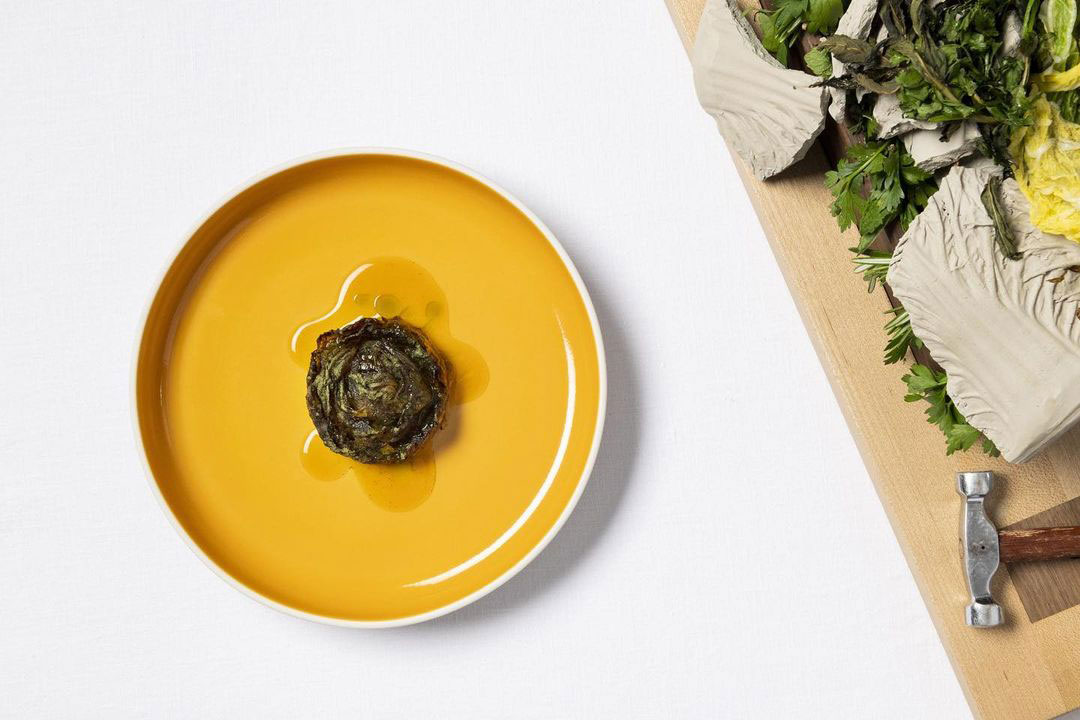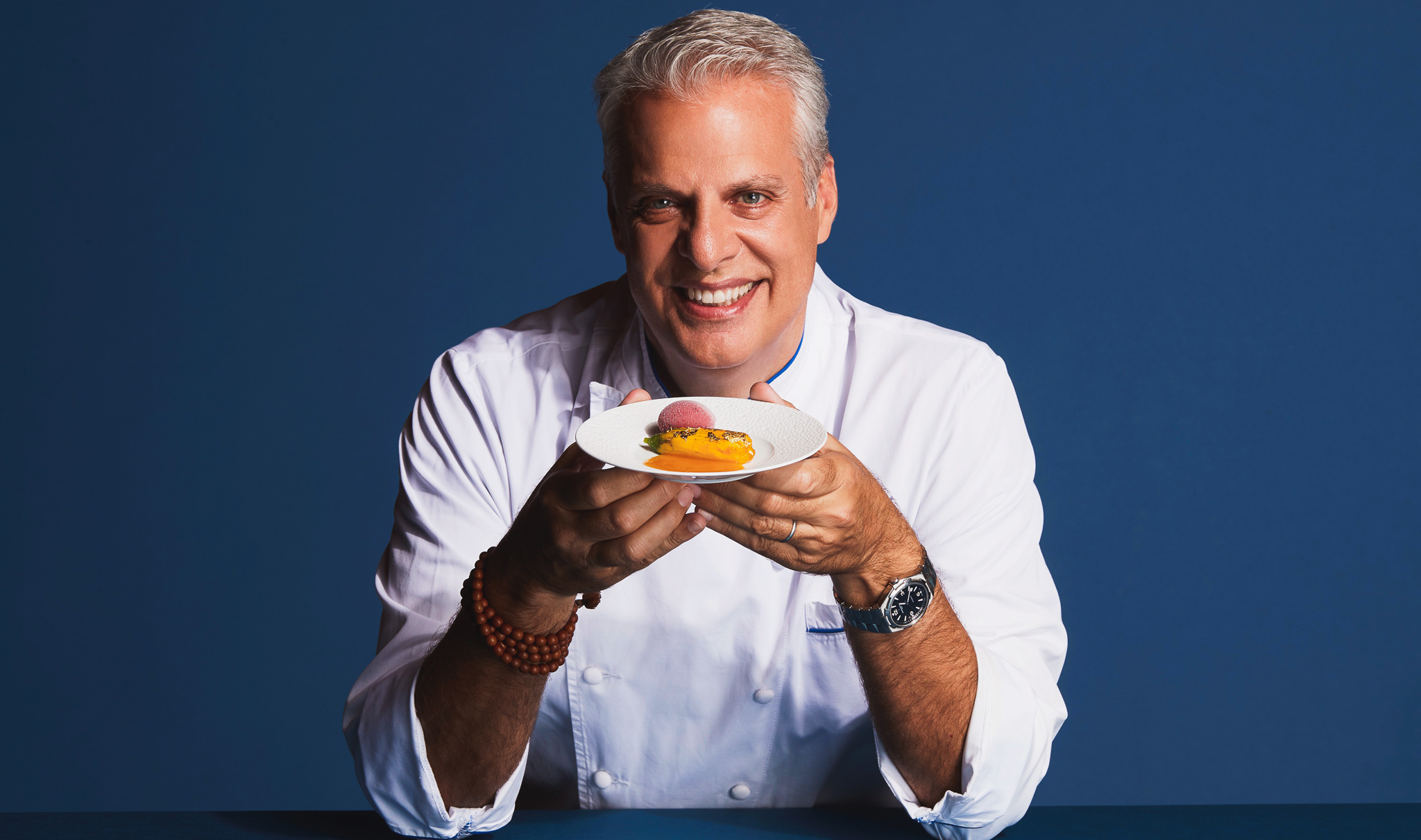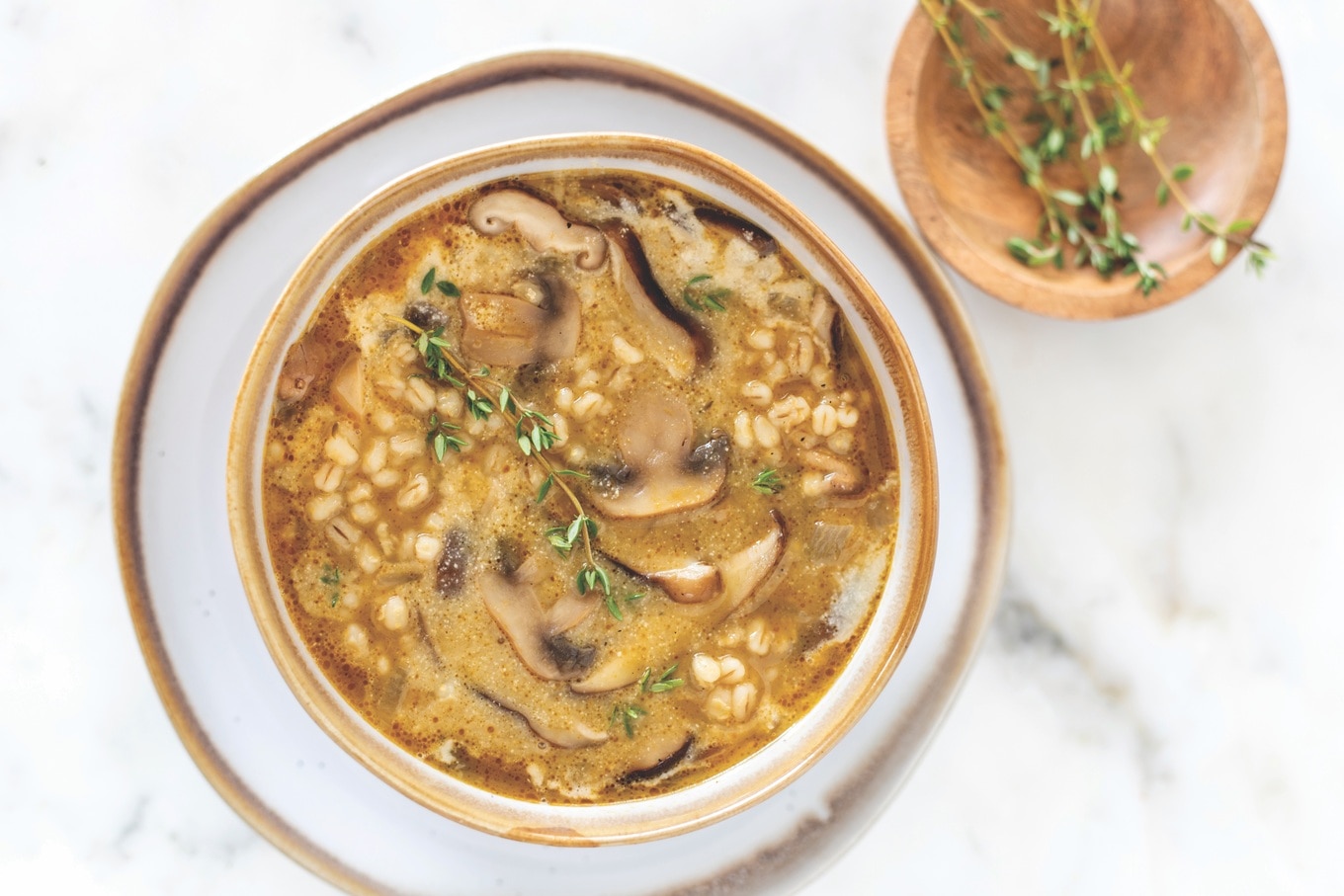Thanks to a growing number of forward-thinking Michelin starred chefs, the world of fine dining is undergoing a shift away from the indulgent feasts of caviar, filet mignon, and other animal products that defined it in years past. The latest example of this can be found at Reale, a restaurant in Italy’s Abruzzo region which Italian dining authority Gambero Rosso recently named as the best restaurant in the country.
There, three Michelin-starred chef Niko Romito focuses on local produce, such as broccoli leaves, to create a vegetarian tasting menu that he says can stand up to fine-dining dishes made with meat and fish. “We made a radical choice to have a vegetarian tasting menu,” Romito told CNN. “To receive this award while having a vegetarian menu means that a critic understands our work and the extent of our research.”
Niko Romito/Instagram
The restaurant, which occupies the space of former monastery Castel di Sangro, serves meat on its a la carte menu but now offers a 14-course vegetarian tasting menu (approximately $176 per person) as a way to infuse fine dining with new and exciting options while exploring the full potential of vegetables.
“If I think of legumes in Abruzzo, chickpeas, lentils, and beans, these are not often used in fine dining. So if fine dining starts using these ingredients, it influences everyday restaurants,” Romito said. “I’m interested in changing the paradigm for chefs, but also of the client that comes to eat who realizes vegetables can be even more exciting than meat or fish.”
Table of Contents
Vegetables star on fine-dining menus
Romito’s bold choice to offer a vegetarian menu in light of his Gambero Rosso recognition is reminiscent of a similar move made by Michelin-starred chef Daniel Humm. Last summer, Humm was motivated by the climate crisis to reopen New York City’s famed restaurant Eleven Madison Park as a plant-based establishment.

Instead of its signature smoked duck and other animal proteins, the restaurant’s menu now serves imaginative dishes that focus on fresh produce. To bring interesting flavors to the menu, Humm employs a wide range of culinary techniques and exciting technologies such as precision fermentation to transform these plant-based ingredients into elevated dishes.
For instance, on the current menu, Humm is exploring tonburi (a plant-based caviar made from the seeds of the Japanese Summer Cypress) which is served with turnip écrasée, potato purée, and is finished with a smoked turnip and almond broth.
With this new focus on plants, many worried that Eleven Madison Park would be stripped of the three Michelin stars it was awarded when animal products were on its menu. However, in October, Humm’s decision was validated when the Michelin Guide announced Eleven Madison Park would retain all three of its Michelin stars—becoming the first fine-dining restaurant in the world to hold them.
“I am so beyond grateful to the team that’s with us here now and every member who contributed through its nearly 25-year history,” Humm and his team posted to Instagram at the time. “We are also grateful to our guests and partners who believed in our vision and encouraged us to push harder.”
Romito and Humm are not alone in their pursuit of elevating plants on their fine-dining menus. Legendary chef Alain Duccasse—who has amassed 21 Michelin stars throughout his career— is a vocal supporter of vegetable-centric cuisine. In 2021, the chef opened Sapid in Paris where Ducasse reimagines French cuisine as vegetable-forward where 95 percent of the menu is focused on vegetables and animal products are only used as seasoning.
Michelin-starred chefs explore food tech
While many Michelin-starred chefs explore the potential of vegetables, others are looking to food technology to bring innovation to their fine-dining menus.
This summer, chef Eric Ripert put Fy—a nutritional fungi protein with origins at Yellowstone National Park—on his menu at Le Bernardin, another NYC fine-dining institution that has maintained its three Michelin stars for a decade. Made by Chicago-based Nature’s Fynd, the protein has a wide range of applications in meat and dairy alternatives.

Nigel Parry
At Le Bernardin, Ripert used Fy to elevate several vegan desserts. Ripert also joined Nature’s Fynd as a culinary advisor and is working to develop additional culinary applications for its innovative fungi-derived protein.
In San Francisco, Dominique Crenn—the first woman in the United States to be awarded three Michelin stars—is exploring adding cultivated meat to her repertoire. Crenn is in a partnership with UPSIDE Foods to add its cultivated chicken (or real meat made from a small amount of animal cells) to her menu at San Francisco restaurant Atelier Crenn, where she has not served meat from land animals since 2018 due to their high carbon footprint.
 UPSIDE Foods
UPSIDE Foods
And fine-dining aficionados might soon be able to try chicken made without slaughtering a single bird. That’s because last month, UPSIDE became the first cultivated meat producer in the US to receive a “generally regarded as safe” (or “GRAS”) letter from the US Food and Drug Administration (FDA), making its cultivated chicken filets one step closer to hitting the plate.







